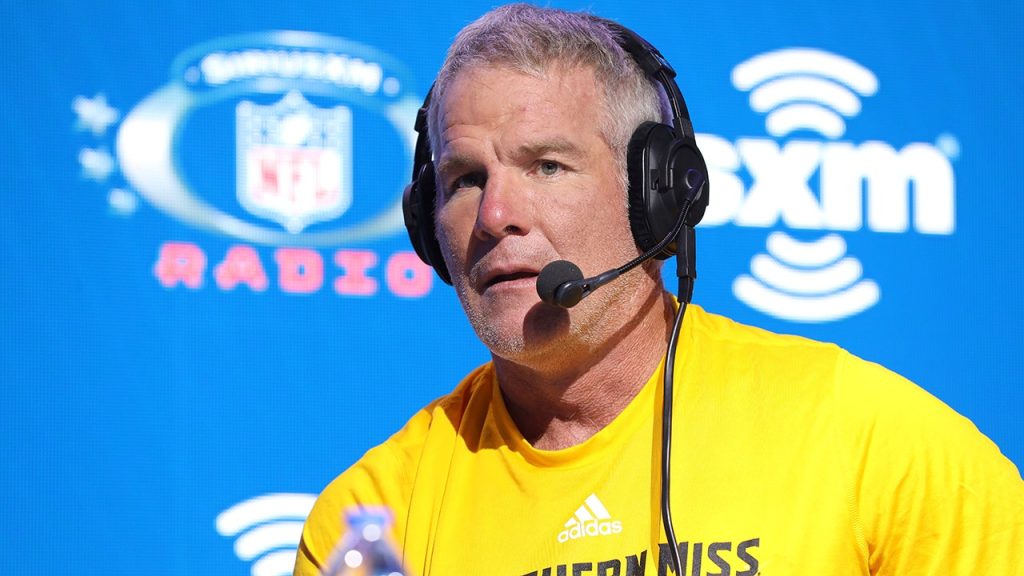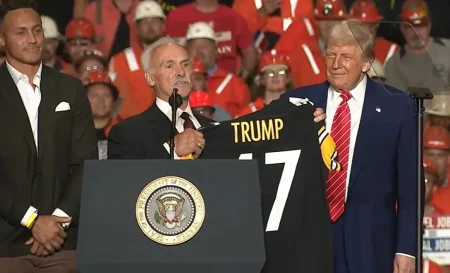The Allstate CEO’s Sugar Bowl Message and the Ensuing Backlash: A Case Study in Misinterpretation and Polarization
The 2024 Sugar Bowl, a prominent college football playoff game, became the unexpected stage for a controversy ignited by a pre-game message from Allstate CEO Tom Wilson. Intending to address the recent terrorist attack on Bourbon Street in New Orleans, Wilson’s message urging unity and acceptance was met with significant backlash, particularly from those who perceived it as a "woke" intrusion into a sporting event. This incident underscores the complexities of communicating in a polarized environment, where well-intentioned messages can be easily misinterpreted and weaponized in ongoing cultural and political debates.
Wilson’s message, delivered in a video before the game between Georgia and Notre Dame, called for Americans to overcome "an addiction to divisiveness and negativity" and to embrace each other’s imperfections and differences. He framed this appeal within the context of the tragedy on Bourbon Street, expressing solidarity with the victims and their families. However, this attempt to link a call for unity with a specific act of terrorism appeared to backfire, with many interpreting the message as minimizing the attack or inappropriately injecting political commentary into a sporting event. The timing and context of the message, delivered in the immediate aftermath of a traumatic event, likely contributed to the negative reception.
Further fueling the controversy was the absence of a televised national anthem before the game, a fact that was quickly linked to Wilson’s message by critics. Former NFL quarterback Brett Favre, a prominent voice in conservative circles, publicly condemned the message, labeling it "woke" and expressing outrage over the perceived replacement of the anthem with a corporate statement. This criticism resonated with many who shared Favre’s concerns, further amplifying the negative reaction to Wilson’s message and contributing to calls for a boycott of Allstate. The conflation of the anthem omission with the CEO’s message, regardless of whether a direct connection existed, served to heighten the sense of grievance and outrage among those opposed to the message.
Allstate responded to the growing backlash by clarifying Wilson’s stance, emphasizing his condemnation of violence and terrorism while reiterating the company’s commitment to fostering trust and positivity within communities. This clarification, however, appeared to do little to quell the criticism, with many remaining unconvinced by the company’s explanation. The rapid spread of the controversy on social media platforms, particularly on X (formerly Twitter), contributed to the escalating tensions and made it difficult for Allstate to effectively manage the narrative. The incident demonstrates the challenges corporations face when attempting to address sensitive social and political issues in a highly charged media environment.
The terrorist attack itself added another layer of complexity to the situation. Shamsud-Din Jabbar, the perpetrator of the attack, drove a pickup truck bearing an ISIS flag through a crowd on Bourbon Street, killing 14 people and injuring dozens more. The FBI categorized the attack as terrorism, further intensifying the emotional climate surrounding the Sugar Bowl and making any public commentary on the subject particularly delicate. The attack served as a stark reminder of the real-world consequences of extremism and violence, and any perceived attempt to downplay or politicize the tragedy was met with understandable anger and resistance.
The broader context of increasing political polarization and cultural division in the United States also played a significant role in the reaction to Wilson’s message. In an environment where even seemingly innocuous statements can be interpreted through a partisan lens, the CEO’s call for unity and acceptance was perceived by some as a coded endorsement of a particular political ideology. This perception was amplified by the use of the term "woke," a loaded term often used to disparage progressive or left-leaning viewpoints. The incident highlights the challenges of fostering genuine dialogue and understanding in a society increasingly fractured along ideological lines.
The controversy surrounding Wilson’s message also raises questions about the appropriate role of corporations in addressing social and political issues. While some argue that companies have a responsibility to speak out on important matters, others believe that their primary focus should be on their core business operations. This debate is likely to continue as corporations grapple with the complexities of navigating a polarized and rapidly changing social landscape. The Sugar Bowl incident serves as a cautionary tale, demonstrating the potential for well-intentioned corporate messaging to be misconstrued and generate unintended negative consequences.










